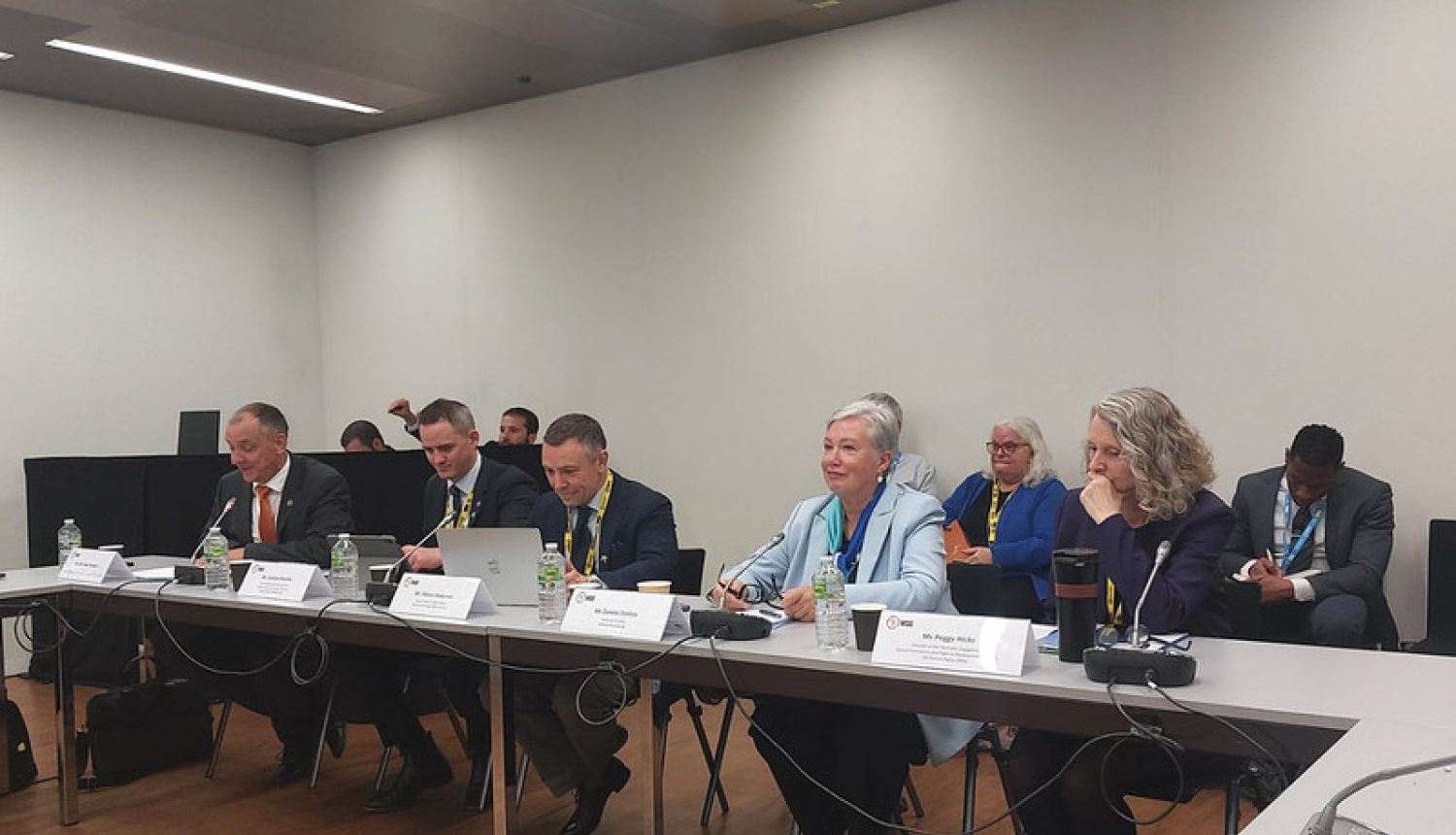On 8 July 2025, a panel discussion “What Proliferation of Artificial Intelligence Means for Information Integrity?”, organised by Latvia, took place in Geneva as part of the high-level event World Summit on the Information Society. The objective of the discussion was to find solutions on how to ensure the integrity of information and counter information manipulation in the era of artificial intelligence (AI) technology development, while respecting human rights and freedom of expression.
Discussions with international partners provided an opportunity to present the achievements and expertise of Latvia in combatting disinformation, as well as its work in the field of artificial intelligence. Experts emphasised the importance of investment expertise, transparency of technology companies and AI literacy. One of the priorities of Latvia in the UN Security Council is solutions for security, sustainability and development, as well as the inclusion of 21st century threats on the agenda – cyber security and risks posed by artificial intelligence.
The event was opened by the Ambassador of Latvia to the United Nations in Geneva, Ivars Pundurs, and chaired by Special Envoy on Digital Affairs at the Ministry of Foreign Affairs, Viktors Makarovs. The panel discussion, conducted in hybrid format, was attended by over eighty representatives from governments and non-governmental organisations. Viktors Makarovs emphasised that Latvia is one of the leaders in combatting disinformation and stands ready to share its experience in this field, including within the UN Security Council.
The opportunities and challenges of AI for information space security were discussed by representatives of international and non-governmental organisations, as well as academics – Septiaji Eko Nugroho, President of the Indonesian non-governmental organisation “MAFINDO”, Peggy Hicks, Director of Thematic Engagement, Special Procedures and Right to Development Division of the UN Human Rights Office, Graham Brookie, Vice President and Senior Director of Technology Programmes at the Atlantic Council’s “Digital Forensic Research Lab” (DFRLab), as well as Professor Žaneta Ozoliņa, representative of the “AI4Debunk” project at the University of Latvia.
During the visit to Geneva, on 9 and 10 July, the Special Envoy on Digital Affairs at the Ministry of Foreign Affairs, Viktors Makarovs, met with the UN Special Rapporteur on the Promotion and Protection of the Right to Freedom of Opinion and Expression, Irene Khan, and discussed the challenges to freedom of expression and integrity of information in the digital age, the Chair of the UN Commission on Science and Technology for Development Working Group on Data Governance, Peter Major, and discussed the ongoing work on data governance at the UN Commission on Science and Technology for Development Working Group, as well as with Director of Thematic Engagement, Special Procedures and Right to Development Division of the UN Human Rights Office, Peggy Hicks, and discussed the impact of AI on freedom of expression and human rights in general.
The discussions took place in the context of Latvia’s upcoming participation in the United Nations Security Council, set to begin in 2026.
On 10 July, Viktors Makarovs also participated in the “AI for Good” Summit roundtable discussion on AI governance with representatives of leading academics, governments, large technology companies, and non-governmental organisations.
The World Summit on the Information Society (WSIS+20) seeks to establish a platform for addressing information and communication technology issues in a structured and inclusive way across national, regional and international levels. The World Summit on the Information Society review process is currently underway and is scheduled to conclude at the UN General Assembly on 16–17 December 2025.
The “AI for Good” Summit explores new ways in which AI can accelerate progress toward the UN Sustainable Development Goals and foster connections between innovators and private sector representatives, with the aim of promoting the global use of AI tools.
The discussion was organised as part of a public diplomacy programme in support of the campaign of Latvia’s candidacy for the UN Security Council. On 3 June 2025, Latvia was elected to the UN Security Council for the term from 1 January 2026 to 31 December 2027. Serving as a non-permanent member of the Security Council will be an important platform for promoting Latvia’s foreign policy interests. The primary objective of Latvia’s membership is to safeguard and strengthen an international environment that supports the security of Latvia while using and enhancing the opportunities provided by multilateral diplomacy.




